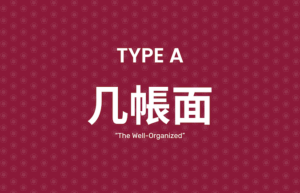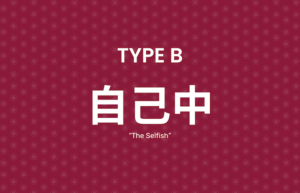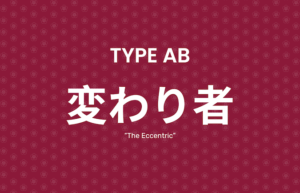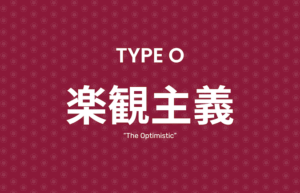25 Nov What Your Blood Type Says About Your Personality
 Did you know that your blood type may affect your personality? This belief is popular in Japanese culture despite its lack of scientific backing. Like Western Zodiac signs or Chinese Feng Shui, this system is called “Ketsueki-gata.” The term is a combination of “ketsueki” (blood) and “gata” (type), showing how people have certain traits based on their blood type. Ketsueki-gata tells us about people’s personality traits while reflecting strong cultural beliefs. Read on to learn more about Ketsueki-gata’s history, controversy, and what your blood type says about you.
Did you know that your blood type may affect your personality? This belief is popular in Japanese culture despite its lack of scientific backing. Like Western Zodiac signs or Chinese Feng Shui, this system is called “Ketsueki-gata.” The term is a combination of “ketsueki” (blood) and “gata” (type), showing how people have certain traits based on their blood type. Ketsueki-gata tells us about people’s personality traits while reflecting strong cultural beliefs. Read on to learn more about Ketsueki-gata’s history, controversy, and what your blood type says about you.
The Birth and Evolution of Ketsueki-gata
Speculation around Ketsueki-gata first began in Japan in 1916. However, it became popular in 1927 when psychologist Takeji Furukawa published “The Study of Temperament Through Blood Type.” Even though he wasn’t a scientist, the Japanese public loved his work. It was so widespread that it even impacted the military’s idea of an ideal soldier. Furukawa also used his findings to compare blood types among ethnic groups. He thought that the rebelliousness of Taiwanese people was due to a high prevalence of Type O blood. In contrast, he believed that the submissive Ainu had a lower percentage of Type O blood.
In the 1970s, journalist Masahiko Nomi, with no medical background, renewed interest in Ketsueki-gata. He wrote many books on the topic. Although the books were popular, doctors criticized them for being unscientific. Nomi’s son, Toshitaka, continued to promote the theory, later creating the Human Science ABO Center in 2004 for further research.
Blood Type Personalities
The Ketsueki-gata says that each blood type has certain personality traits. Here is a detailed personality profile for each type:
 Type A
Type A
Traits: harmonious, meticulous, reliable, stubborn, tense
This group is the largest in Japan. Type As are well-organized, earnest, and sensitive. They value harmony and are often reserved, patient, and perfectionistic. However, they can also be prone to tension, anxiety, and stubbornness. People recognize them for their meticulousness and high standards, leading to an orderly lifestyle. Their heightened stress comes with cardiovascular risks due to increased cortisol levels.
 Type B
Type B
Traits: passionate, creative, adventurous, self-serving, unpredictable
Japanese people love Type Bs for their creativity, passion, adventure, and independence. They are seen as curious, spontaneous, and talented leaders, especially in competitive environments. Despite their strong leadership qualities, they can be self-centered, unpredictable, and emotionally driven. They tend to be temperamental and to challenge the status quo.
 Type AB
Type AB
Traits: adaptable, charming, friendly, complicated, two-faced
AB types represent a mix of A and B traits. They are adaptable, empathetic, and compassionate. Additionally, they are reflective, often experimenting with creative and unconventional thinking. Socially inclusive, Type ABs appreciate diversity and enjoy being around different people. However, they can also be critical, indecisive, and have a “split personality.” Type ABs experience higher stress levels than other types.
 Type O
Type O
Traits: outgoing, ambitious, strong-willed, insensitive, arrogant
Type Os are optimistic, outgoing, and have strong leadership qualities. Also, they are bold, assertive, and confident risk-takers. They exhibit a fun-loving nature but can also be stubborn, aggressive, and stressed. Their behavior is often seen as confident and self-determined, yet they can also be insensitive and arrogant.
Impact on Culture
Though not scientifically sound, Ketsueki-gata is still significant in Japanese culture. It’s a common topic in entertainment, dating, employment, and daily life. For example, in anime and manga, displaying characters’ blood types is typical, reflecting their personalities. The same applies to video games, where players can select blood types in creation modes. Ketsueki-gata is so widespread that Japanese Facebook includes blood type in your profile.
In women’s magazines, discussing blood types is a popular method for gauging relationship compatibility. Morning television shows feature blood-type horoscopes. Even celebrities’ blood types are present in their profiles on Japanese Wikipedia. Books describing people’s character by blood type were among the best-sellers in Japan as of 2008. Though this system began in Japan, it is also popular in other parts of Asia, especially in South Korea and Taiwan.
However, the influence of Ketsueki-gata has not been entirely positive. It has led to a type of blood-type harassment termed “bura-hara.” This includes bullying, job discrimination, and social exclusion. Despite these negative aspects, it remains a deeply ingrained part of East Asian societal norms. A study showed that more than 50% of Japanese people in a survey liked talking about blood types and personality traits.
Scientific Backing
Scientifically, the Ketsueki-gata or blood type personality theory has little to no support. A study by Kengo Nawata, a Japanese social psychologist, found that blood type explained less than 0.3% of personality differences. Nawata found that blood type has no relevance to personality. Other studies on the “big five” personality traits yielded similar results.
However, some studies show that people’s beliefs about their blood type can influence how they describe their personality. Studies such as the one by researchers Sakamoto and Yamazaki and others support this.
These findings show that Ketsueki-gata lacks scientific support. Any connections are probably due to beliefs and expectations rather than facts.
An Enduring Legacy
In conclusion, Ketsueki-gata’s blood type personality theory is still very important in Japanese and Korean cultures. Though not scientifically accurate, its influence on everyday life and popular culture is undeniable. So, if a Japanese person ever asks your blood type, prepare for a fun conversation about this unique aspect of East Asian culture!
